
Reimagining familiar and more obscure works of Duke Ellington through the lense of contemporary improvisation, including "Mood Indigo", "Black and Tan Fantasy", "Self Portrait of the Bean", "Burmingham Breakdown", &c., from the powerful Who Trio of Michel Wintsch on piano, Banz Oester on double bass and Gerry Hemingway on drums, captured live at the 2023 Jazz Festival Willisau.
In Stock
Quantity in Basket: None
Log In to use our Wish List
Shipping Weight: 3.00 units
EU & UK Customers:
Discogs.com can handle your VAT payments
So please order through Discogs
Sample The Album:
Michel Wintsch-piano
Banz Oester-double bass
Gerry Hemingway-drums, voice
Click an artist name above to see in-stock items for that artist.
Includes two color postcard of a band performance
UPC: 752156710226
Label: ezz-thetics by Hat Hut Records Ltd
Catalog ID: ezz-thetics 102
Squidco Product Code: 34999
Format: CD
Condition: New
Released: 2024
Country: Austria
Packaging: Cardboard Gatefold
Recorded live at Jazz Festival Willisau, in Willisau, Switzerland, on September 2nd, 2023, by Lars Dolle.
"For over twenty-five years, the WHO Trio have toured internationally, infusing the rich heritage of jazz and improvised music with contemporary sounds. The focus of their Willisau recording is Ellington compositions, but their approach to him is a radical one. Their interpretations raise general issues for interpretation of songs in jazz. Many songs have become known as "standards". The term "standard" appeared in the late 40s and early 50s, and refers to what became known as the Great American Songbook of classic show-tunes and film-themes, written mostly between the 1920s and 1950s. A working jazz musician knows them intimately; they provide a fruitful basis for improvisation, and a common language. "I'm a jazz player, but I don't know any standards" makes no sense.
Before the sixties, hit songs came from musicals - Sinatra's fifties albums were replete with them. With the Beatles, hit songs no longer originated in Broadway musicals. So increasingly, "standards" now belong to an earlier era, and are known only to jazz fans - my music students are probably familiar with "Summertime", "Over The Rainbow", "Moon River" and very few others. The songs on this album are "jazz standards" - a smaller category of songs, written by jazz musicians such as Ellington, Monk, Coltrane and Davis. Many of these composers, and a few others - Morton, Ellington, Monk, Gil Evans - are jazz composers in a further sense of writing their songs, and those by others, for a band. So "the role of the composer in jazz" refers to
(1) pop and jazz composers of songs including standards
(2) jazz composers like Morton, Ellington and Gil Evans, and finally
(3) the improviser as composer - improvisation as a compositional method
The trio's improvised treatments of their Ellington material certainly count as a compositional method in its own right. However, Hemingway stresses that their selection of songs is unusual: "A 'standard' is played often by many different musicians over time and so made popular. But some of Ellington's and Strayhorn's repertoire that we play are more obscure, such as 'Self Portrait of the Bean' - which I am unaware of anyone else of note interpreting - and 'Birmingham Breakdown'."
"What is a standard, what is a song (with lyric) and what is both?" Hemingway continues. "The songs are sometimes originally instrumental but eventually incorporate lyrics. Lester Young could not play a song he did not know the lyric to. I raise this because the examples I cited above have nothing to do with 'standards'. We are focused on what happened with these pieces in the hands of its creators and the remarkable orchestra which dedicated its life to this music."
Although in jazz the song or standard becomes a basis for improvisation, there's an idea of authenticity. Bill Carrothers told me a story that in Miles Davis's mid-60s band, Wayne Shorter wanted to use a song but the leader rejected it, "because I don't know what that tune wants". Carrothers continued: "When you start to impose your willon the song, it doesn't quite work. [I have] to refer back to its original essence in some way - or what I think the essence is!" Trumpeter Brad Goode, in contrast, commented to me that "My goal is to use the song as a means of expressing my own essence...I need to know a song to a great depth before I perform it [so it] can become an adventure in exploring new possibilities, rooted in spontaneity and interaction...".
Songs can be reinterpreted in many ways without losing their identity. When Bill Evans recreated "Beautiful Love", he transformed a rather trite pop song into art music, finding possibilities never previously conceived. Lee Konitz's method of looking at the original publication, then making incremental changes to the theme rather than treating it as a set of changes, encourages in-depth treatment. But "updating", as in Wynton Marsalis's Standard Time or the work of pianist Jessica Williams, undermines the material's integrity.
On the Willisau album, conventional improvisation on theme and harmonies often transmutes into something looser and more allusive. Hemingway occasionally plays harmonica, and there's a recording of Duke speaking over the performance of "Fleurette Africaine", followed by vocalisations from Hemingway. But the trio rightly object to my use of the term "deconstruction".
For Michel Wintsch, "It's not deconstruction, it's not intellectual, it's just joyfully playing with these object we love." Three things in particular inspired him in Ellington's music:
"The harmonic rhythm: The way chords don't have the same lengths - four bars for one chord, and later two chords in a bar, and so on - opening spaces, and different speeds. Suggesting windows, modal possibilities.
Object-oriented composition: simple riffs he is putting in situations - 'Angelica', 'Wig Wise', 'In A Mellotone'. This is an invitation to grab these objects and do my own construction out of them.
The deep sensible and intelligent mixture between major and minor, between occidental cadences/harmony and the blues, this pentatonic reminiscence beating deep in my stomach. How the music is between masculine and feminine, between tension-resolution events and modal-meditational-spiritual spaces. Ellington was a master of that.
Through all this, his compositions touch very broad artistic fields: tenderness, humour, anger, sadness, joy, and always in movement, in a dance, in a vibration."
Hemingway comments that "We are in the business of transformation, applying our knowledge of improvising together for twenty-five years, interwoven with our resonance with these melodies and forms. We have found our collective way with honouring what these pieces express to us, through our personal language." He agrees that there's a concept of authenticity. "The feeling of swing is our own, but shaped by the pieces we are playing. Authenticity is acquired through assimilating traditions, and one of the traditions is finding one's personal way of sounding, of swinging, of conversing with each other." The result is one of the finest, and most unusual, of Ellington tributes."-Andy Hamilton, May 27, 2024
Includes two color postcard of a band performance

The Squid's Ear!
Artist Biographies
• Show Bio for Michel Wintsch "Pianist and composer Michel Wintsch's unflagging inspiration springs from a rich and varied musical background. Linking jazz tradition with the raw power of "progressive" rock, freewheeling improvisation with the rigors of orchestral composition, virtuoso playing with digital editing and mixing techniques, he takes an approach that is both syncretic and poetic. A way of composing that leaves plenty of creative space to fellow musicians, yet establishes a style that is his alone. He has been touring regularly with the WHO trio, among others, for the past 10 years on a worldwide scale. He has published many records and played with many musicians (Fred Frith, Han Bennink, Michel Doneda etc). He has worked as a composer for cinema (Alain Tanner), theatre and ballet as well as many other musical projects." ^ Hide Bio for Michel Wintsch • Show Bio for Banz Oester "Bänz Oester has worked with the likes of many great jazz musicians, such as Dewey Redman, Joe Lovano, Michael Brecker, Ray Anderson, Ellery Eskelin and Chris Potter. His bass foundations and musicality has formed the backbone of multiple collaborations. Over the past 30 years he has been one of the most sought-after bassists. Currently he is performing with his quartet, The Rainmakers, in the WHO Trio with Michel Wintsch and Gerry Hemingway, in the Donat Fisch Quartett, in the trio with Hans Feigenwinter and Norbert Pfammatter and in one more trio with Alvin Schwaar and Noé Franklé. Bänz Oester is also recognized as an exceptional soloist. He knows his instrument down to the pores and continuosly explores it anew with plucking, stroking and percussive playing techniques. In his hands the bass becomes a body of sound that exceeds stylistic boundaries. He creates an architecture of music that is pure melody, emotion and groove, swinging, dancing and relishing/revelling into the warm sound that is the trademark of Bänz Oester." ^ Hide Bio for Banz Oester • Show Bio for Gerry Hemingway "Gerry Hemingway has led a number of quartet and quintets since the mid 1980's. In addition he has been a member of a wide array of long standing collaborative groups including Brew with Reggie Workman and Miya Masaoka, the GRH trio with Georg Graewe and Ernst Reijseger, the WHO trio with Michel Wintsch and Bänz Oester, as well as numerous duo projects with Thomas Lehn, John Butcher, Ellery Eskelin, Marilyn Crispell, and others. Mr. Hemingway is a Guggenheim fellow and has received numerous commissions for chamber and orchestral works as well as being noted for his innovative and multifaceted work as a solo performer which began in 1974. He was a member of the Anthony Braxton Quartet between 1983 and 1994 and is also well known for his collaborations with some of the world's most outstanding improvisers and composers including Evan Parker, Cecil Taylor, Mark Dresser, Anthony Davis, Derek Bailey, Leo Smith and many others. He currently lives in Switzerland having joined the faculty of the Hochschule Luzern in 2009." ^ Hide Bio for Gerry Hemingway
1/7/2026
Have a better biography or biography source? Please Contact Us so that we can update this biography.
1/7/2026
Have a better biography or biography source? Please Contact Us so that we can update this biography.
1/7/2026
Have a better biography or biography source? Please Contact Us so that we can update this biography.
Track Listing:
1. Reimagination #1 / Moon Indigo 5:57
2. Reimagination #2 / The Mooche 6:38
3. Reimagination #3 / Birmingham Breakdown 5:07
4. Reimagination #4 / Self Portrait Of The Bean 11:55
5. Interlude 3:00
6. Wig Wise / Reimagination #5 6:23
7. Angelica / Reimagination #6 4:57
8. Fleurette Africaine 7:00
9. Reimagination #7 / Black And Tan Fantasy 5:33
Hat Art
Improvised Music
Jazz
Free Improvisation
Jazz & Improvisation Based on Compositions
European Improvisation, Composition and Experimental Forms
Trio Recordings
Staff Picks & Recommended Items
Recent Releases and Best Sellers
Search for other titles on the label:
ezz-thetics by Hat Hut Records Ltd.

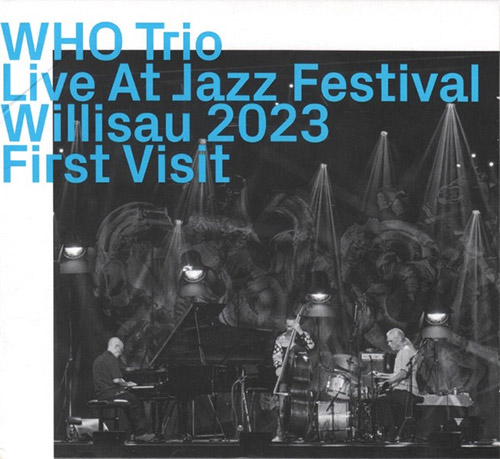


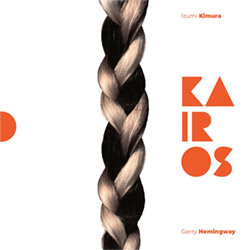
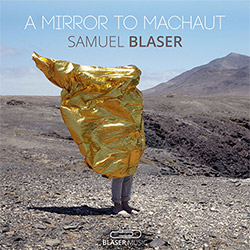

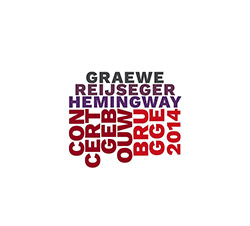




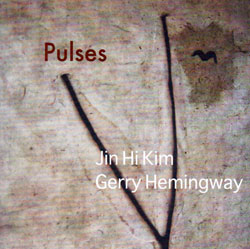
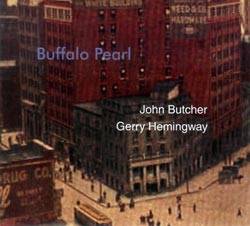
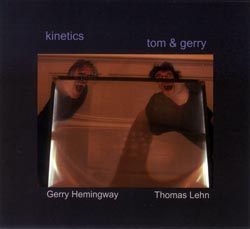
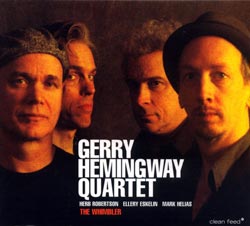
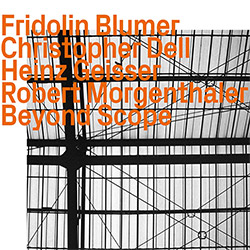

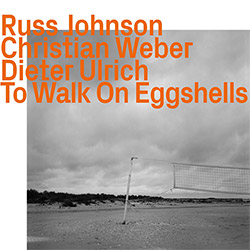



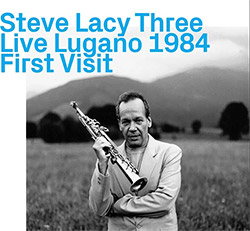


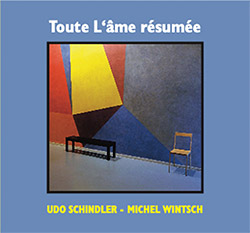
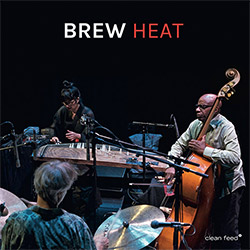
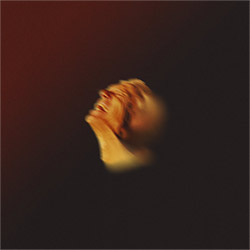

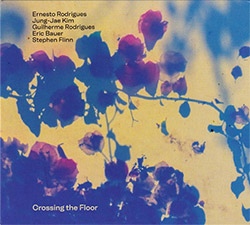





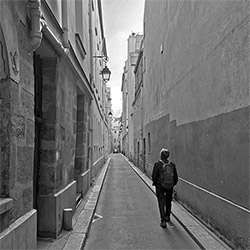
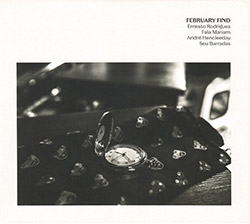




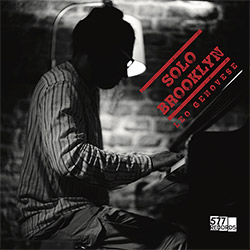
![Coley, Byron / Mats Gustafsson / Thurston Moore: Now Jazz Now: 100 Essential Free Jazz & Improvisation Recordings (1960-80) [BOOK]](https://www.teuthida.com/productImages/misc4/36932.jpg)
![Evans, Peter / Being & Becoming: Ars Ludricra [VINYL + DOWNLOAD]](https://www.teuthida.com/productImages/misc4/37026.jpg)
![HobbyHouse (Mia Dyberg / Axel Filip): HobbyHouse [CD + DOWNLOAD]](https://www.teuthida.com/productImages/misc4/36944.jpg)
![Mines, Kelsey / Erin Rogers: Scratching At The Surface [CD + DOWNLOAD]](https://www.teuthida.com/productImages/misc4/36945.jpg)
![Nebbia, Camila (feat/ Marilyn Crispell / Lesley Mok): A Reflection Distorts Over Water [CD + DOWNLOAD]](https://www.teuthida.com/productImages/misc4/36946.jpg)
![Vanheerentals, Adia: Taking Place [CD + DOWNLOAD]](https://www.teuthida.com/productImages/misc4/36947.jpg)
![Mines, Kelsey / Vinny Golia: Collusion and Collaboration [CD + DOWNLOAD]](https://www.teuthida.com/productImages/misc4/36948.jpg)
![Parkins, Zeena: Lament For The Maker [CD + DOWNLOAD]](https://www.teuthida.com/productImages/misc4/36949.jpg)
![Evans, Peter / Mike Pride : A Window, Basically [CD + DOWNLOAD]](https://www.teuthida.com/productImages/misc4/36950.jpg)



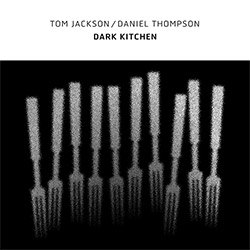
![Frey, Jurg : Composer, Alone [3 CDs]](https://www.teuthida.com/productImages/misc4/36927.jpg)
![Belorukov, Ilia / Alex Riva: Wrestling For Futility [CASSETTE w/DOWNLOAD]](https://www.teuthida.com/productImages/misc4/36994.jpg)
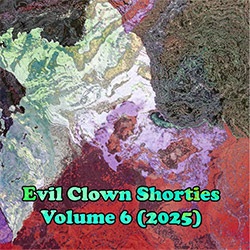
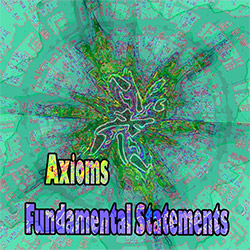


![Agnel, Sophie: Learning [VINYL]](https://www.teuthida.com/productImages/misc4/36841.jpg)
![Monaco, Amanda (w/ Michael Attias / Sean Conly / Satoshi Takeishi) : Deathblow [VINYL+ DOWNLOAD]](https://www.teuthida.com/productImages/misc4/36956.jpg)

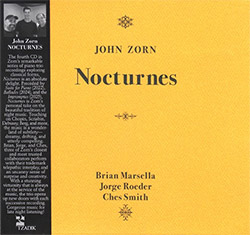
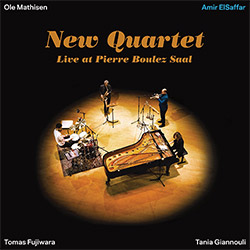
![ElSaffar, Amir / New Quartet : Live at Pierre Boulez Saal [VINYL]](https://www.teuthida.com/productImages/misc4/36830.jpg)

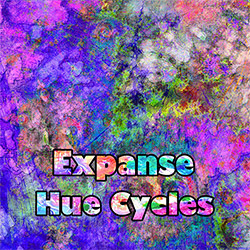
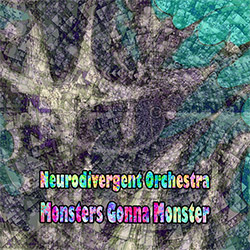


![Musicworks Magazine: #152 Fall 25 [MAGAZINE + CD]](https://www.teuthida.com/productImages/misc4/37004.jpg)




![Genthon, Anouck / Lionel Marchetti: Suite Blanche [2 CDs]](https://www.teuthida.com/productImages/misc4/36642.jpg)
![Toeplitz, Kasper T.: Erosions Programmees [CD + BOOKLET]](https://www.teuthida.com/productImages/misc4/36639.jpg)
![Gate, The : Almost Live [CASSETTE + MAGAZINE]](https://www.teuthida.com/productImages/misc4/36836.jpg)






![A Magic Whistle: The Solar Cell [VINYL]](https://www.teuthida.com/productImages/misc4/36658.jpg)

![McGee, Hal: Columbus Expedition [Cassette w/ Download]](https://www.teuthida.com/productImages/misc4/36650.jpg)


![Jaeger, Kassel: Fernweh [VINYL 2 LPs]](https://www.teuthida.com/productImages/misc4/36541.jpg)





![+DOG+: The Light Of Our Lives [2 CDs]](https://www.teuthida.com/productImages/misc4/36009.jpg)


![Eternities: Rides Again [CASSETTE]](https://www.teuthida.com/productImages/misc4/36247.jpg)








![Frey, Jurg with ensemble]h[iatus: Je Laisse A La Nuit Son Poids D](https://www.teuthida.com/productImages/misc4/36988.jpg)




![Pisaro-Liu, Michael: Within (2) / Appearance (2) [2 CDs]](https://www.teuthida.com/productImages/misc4/36831.jpg)










![Musicworks Magazine: #151 Summer 25 [MAGAZINE + CD]](https://www.teuthida.com/productImages/misc4/36559.jpg)

![Brown, Dan / Dan Reynolds: Live At The Grange Hall [unauthorized][CASSETTE]](https://www.teuthida.com/productImages/misc4/36245.jpg)


![Zorn, John: The Song of Songs [CD + CD BOOK]](https://www.teuthida.com/productImages/misc4/36923.jpg)

![Coultrain: Mundus [COLORED VINYL]](https://www.teuthida.com/productImages/misc4/33056.jpg)
![Hprizm: Signs Remixed [COLORED VINYL]](https://www.teuthida.com/productImages/misc4/30635.jpg)
![Halls Of the Machine: All Tribal Dignitaries [CASSETTE w/ DOWNLOAD]](https://www.teuthida.com/productImages/misc4/36134.jpg)



![Koenjihyakkei: Live at Club Goodman [2 CDs]](https://www.teuthida.com/productImages/misc4/36111.jpg)

![Sorry For Laughing (G. Whitlow / M. Bates / Dave-Id / E. Ka-Spel): Rain Flowers [2 CDS]](https://www.teuthida.com/productImages/misc4/35985.jpg)

![Rolando, Tommaso / Andy Moor : Biscotti [CASSETTE w/ DOWNLOADS]](https://www.teuthida.com/productImages/misc4/36106.jpg)


![Electric Bird Noise / Derek Roddy: 8-10-22 [CD EP]](https://www.teuthida.com/productImages/misc4/35970.jpg)








![Elephant9 : Mythical River [VINYL]](https://www.teuthida.com/productImages/misc4/34624.jpg)



![Elephant9 with Terje Rypdal: Catching Fire [VINYL 2 LPs]](https://www.teuthida.com/productImages/misc4/35355.jpg)
![Coley, Byron: Dating Tips for Touring Bands [VINYL]](https://www.teuthida.com/productImages/misc4/17906.jpg)

![Lost Kisses: My Life is Sad & Funny [DVD]](https://www.teuthida.com/productImages/misc4/lostKissesDVD.jpg)